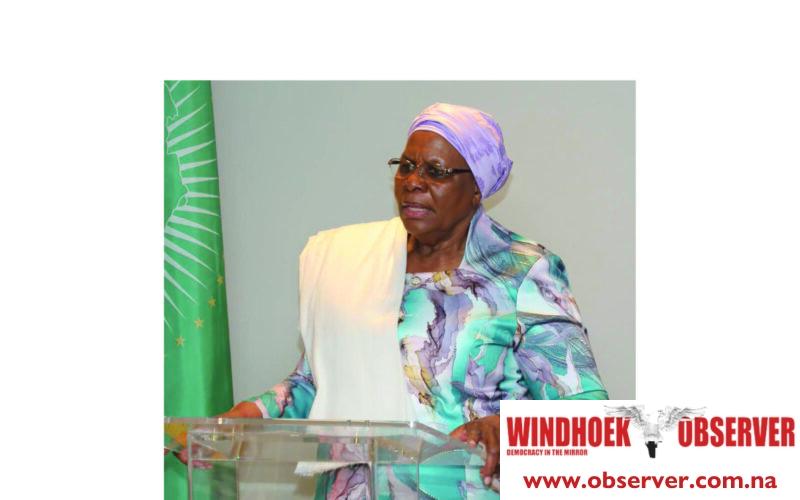Justicia Shipena
President Netumbo Nandi-Ndaitwah has called for fair trade rules and a balanced international financial system that do not put Africa “at the bottom of the ladder”.
Speaking on Sunday in New York on a panel at the Unstoppable Africa 2025 conference, she said global trade must benefit all citizens of the world, including Africans.
“What is required is that we need a fair and balanced international financial system that should not discriminate between Africa and the other continents in the globe. And then also, we need fair trade rules. There should not be rules which are meant to put Africa on the bottom of the ladder. But we need world trade rules that are to benefit all the citizens of the world, including Africa,” Nandi-Ndaitwah said.
She urged African women and youth to expand their participation in trade, citing their historic role as “market women” and said their contribution must now be matched with the global trade order to strengthen economic participation.
Nandi-Ndaitwah stressed that Africa is the leading producer of many of the world’s critical minerals, yet it remains treated as a secondary player while fuelling global growth. “That narrative must change,” she said.
She called for full use of the African Continental Free Trade Area (AfCFTA) to grow intra-African trade, build regional value chains, and process minerals on the continent.
Namibia made its first salt export under the AfCFTA in June, sending a 45,000-tonne consignment to Nigeria.
She warned that Africa cannot afford to continue exporting raw resources and said building industries and creating jobs will allow the continent to claim its economic sovereignty.
On the same panel, Botswana’s President Duma Boko urged Africa to stop exporting raw minerals and focus on processing and developing industries at home.
“Africa now must become a continent of innovation, a continent of beneficiation of its mineral resources, and a continent of industrialisation. We must move away from the practice of having our minerals carted, raw, and exported. We now must beneficiate. We must develop. We must process on the African continent,” Boko said.
He said this shift would require skills, partnerships, and financing from both the private sector and international partners.
He also stressed the need for better transport and energy infrastructure.
“When we exploit our potential in terms of renewable energy, we need to be able to have infrastructure and interconnectors that are able to transmit the power across the breadth and dimensions of the African continent through all these countries,” he said.
Africa’s untapped potential
On another panel, World Trade Organisation director general Ngozi Okonjo-Iweala said Africa must be seen as a market of the future rather than a continent seeking aid. She said global trade rules remain resilient despite recent disruptions.
“Prior to the tariffs, 80% of global trade was taking place on WTO terms. Now it is 72%. Almost three-quarters of global trade is taking place on WTO terms. The system has been hit. It’s been bent, but it’s not broken,” she said.
She said Africa’s trade with the U.S. remains limited, with only 6% of exports and 4% of imports, and the impact of tariffs on the continent is less than 1% of GDP.
She added that Africa should position itself as a hub for young talent and innovation.
“Here’s the market of the future, here’s the place with the young talents, and that’s the way we need to view it and to present ourselves,” she said.
United Nations (UN) secretary general António Guterres told the gathering that Africa’s rise must be “undeniable, inevitable, and unstoppable.”
He outlined four priorities to unlock Africa’s potential. The first is implementing the AfCFTA, which he said needs stronger infrastructure, harmonised standards, and predictable regulations.
The second is leading a green industrial revolution.
“We need a surge in solar and wind projects, expanded grids and storage, and universal energy access for the 600 million Africans still without power,” he said.
Guterres called for an end to “another story of extraction without inclusion” in managing Africa’s critical minerals.
He said transforming food systems must be a priority, noting that Africa holds more than half of the world’s uncultivated arable land but spends over US$100 billion on food imports annually. He urged investment in climate-smart agriculture and smallholder empowerment.
Guterres emphasised that without finance, none of these efforts would be feasible. He backed African calls to cut the cost of capital, pushed for reform of international financial institutions, and called for tripling the lending capacity of multilateral banks.
The Global Africa Business Initiative convened the fourth edition of Unstoppable Africa on Sunday and Monday at the Marriott Marquis Hotel in New York, ahead of the UN’s 80th General Assembly high-level week.
The event brought together governments, business leaders, policymakers, and regional stakeholders to develop frameworks for Africa’s development.




